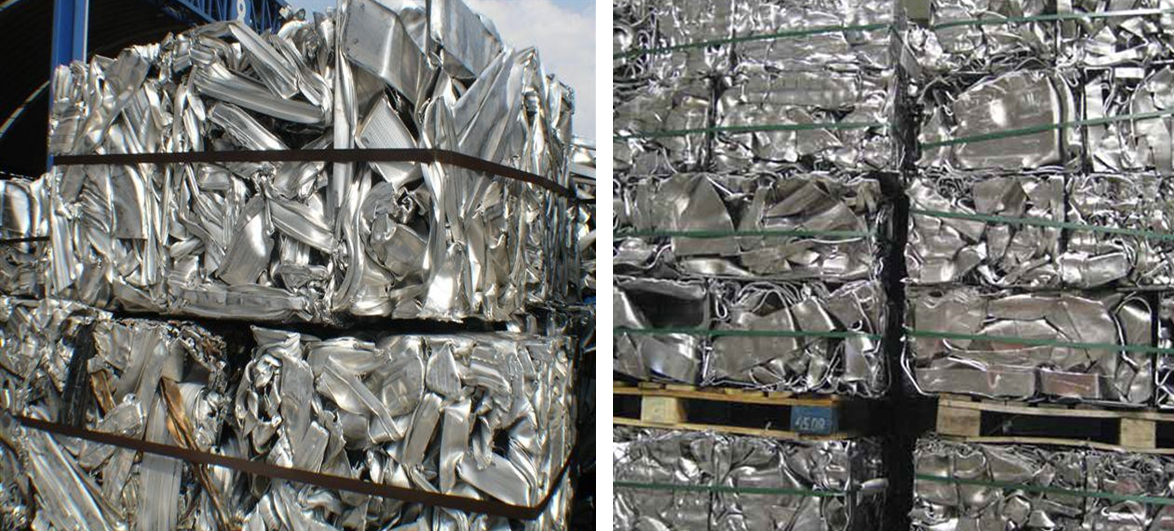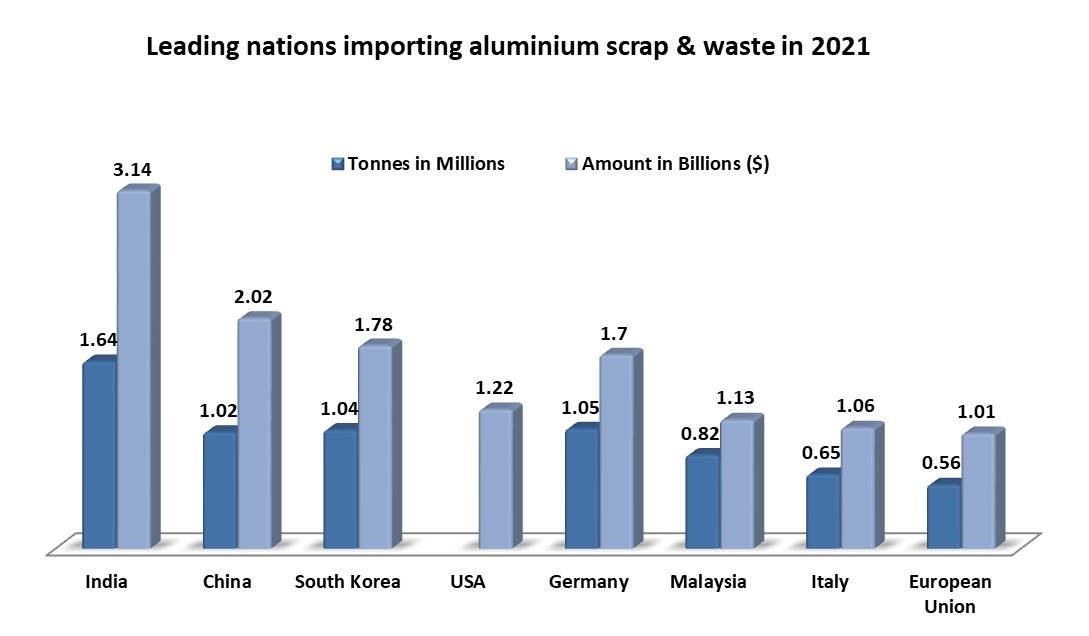Leading nations importing aluminium scrap and waste in 2021
Aluminium waste and scrap falling under HS code 760200 represent a significant component of the global recycling industry. This code refers to unwrought aluminium residues and scrap, which includes various forms of discarded aluminium, such as profiles, sheets, plates, rods, and other shapes. Recycling aluminium waste and scrap is of utmost importance due to the energy and resource savings associated with the process.

Unlike primary aluminium production, recycling aluminium requires significantly less energy, reducing greenhouse gas emissions and lessening the strain on natural resources. This code reflects the international recognition of the importance of reusing and repurposing aluminium materials, contributing to sustainable practices and a more environmentally conscious approach to industrial processes.
World Integrated Trade Solutions (WITS) is a comprehensive and dynamic platform that serves as a valuable resource for trade professionals, policymakers, researchers, and businesses around the globe. Developed by the World Bank, WITS offers a wide range of trade-related data, analytics, and tools to facilitate informed decision-making and enhance understanding of international trade patterns. At its core, WITS provides access to a vast repository of international trade data, including detailed information on imports, exports, tariffs, and non-tariff measures.

According to the World Integrated Trade Solutions (WITS) data with product code 760200, in 2021, the leading importing nations of aluminium waste and scrap are India, China, South Korea, Germany, USA, Malaysia, Italy, European Union, etc.
Both South Korea and Italy rely on imports to meet domestic aluminium demand since neither of these nations currently produces primary aluminium. While the rest imports scrap for secondary aluminium production, they still produce primary aluminium. In terms of primary aluminium production, China is the world's largest contributor, followed by India.
Importing aluminium scrap can contribute to the domestic economy by supporting recycling industries and creating jobs in the recycling sector. It can also lead to cost savings for enterprises that use recycled aluminium compared to primary aluminium.
As mentioned, recycling aluminium requires less energy than producing it from raw materials. This energy savings directly translates to a reduction in carbon emissions, contributing to efforts to combat climate change.
Importing aluminium scrap from countries where it is more readily available can ensure a stable supply of aluminium for domestic industries and the exportation of aluminium products. Aluminium scrap may fulfil specific market demands more effectively than primary aluminium, depending on the required alloys and qualities. Some products or industries may require specific aluminium compositions readily available in scrap form.
Fluctuations can influence global aluminium markets regarding prices, demand, and supply. Depending on market conditions, importing aluminium scrap to meet production needs might be more cost-effective.
It's important to note that a combination of factors can influence the decision to import aluminium scrap by primary aluminium-producing countries. While these countries can produce primary aluminium, importing scrap aluminium can offer economic, environmental, and logistical advantages, contributing to a more sustainable and efficient production process.
This news is also available on our App 'AlCircle News' Android | iOS















.png/0/0)







